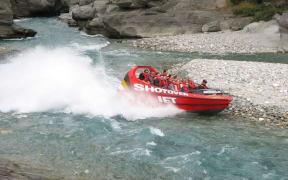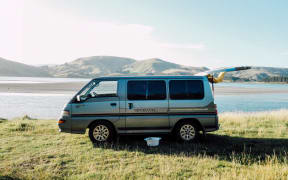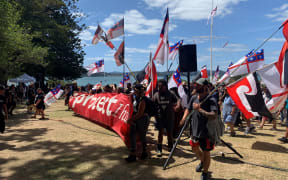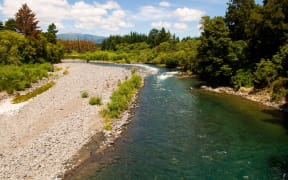Ngāi Tahu has taken legal action against the Crown to assert its rights over freshwater in the South Island, saying it has tried to engage with successive governments on the issue but has been ignored.
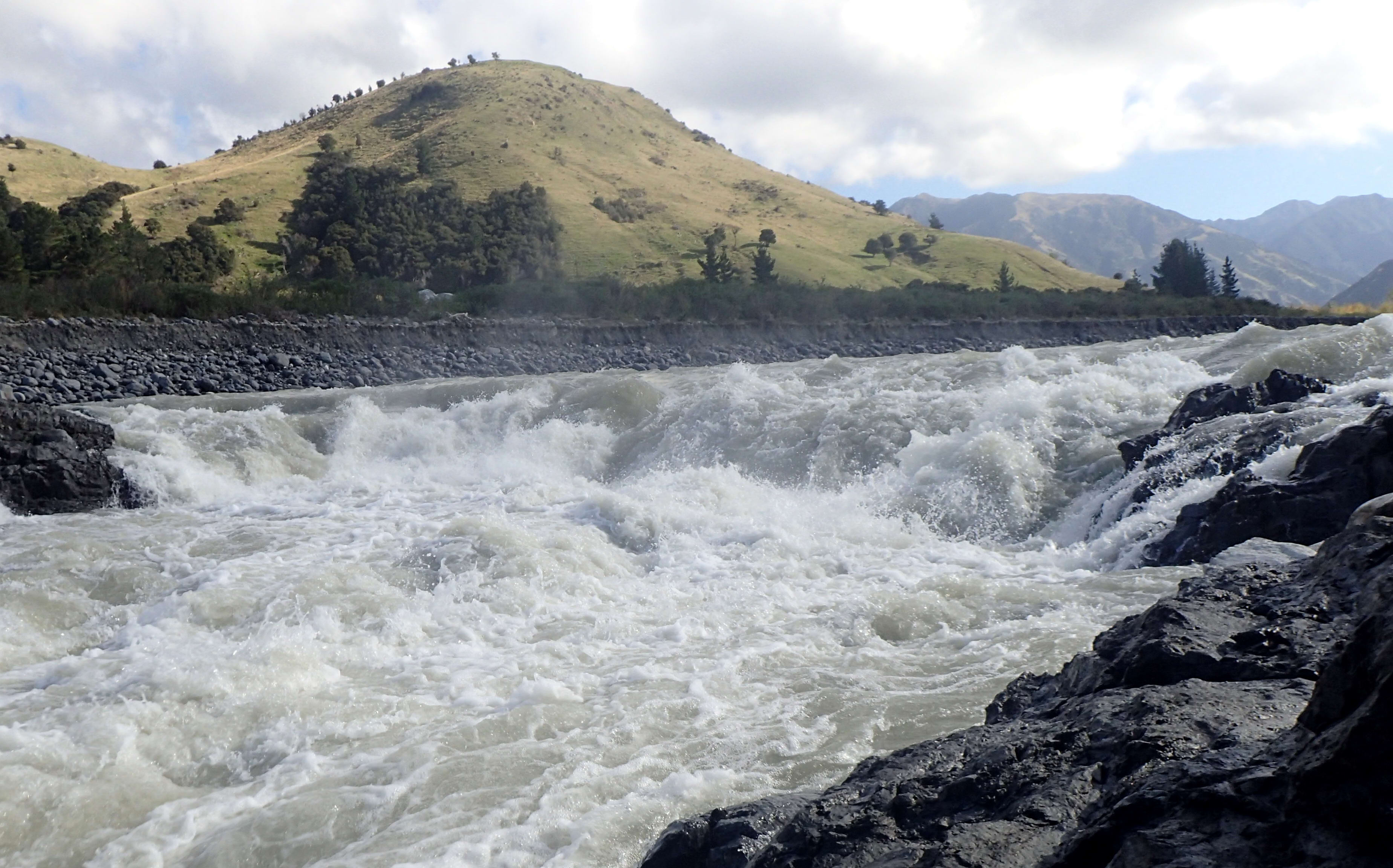
Photo: RNZ/Cosmo Kentish-Barnes
The iwi filed papers at the High Court in Christchurch yesterday seeking to assert its rangatiratanga over freshwater in the Ngāi Tahu takiwā (area), which covers all of the South Island up to the White Bluffs, southeast of Blenheim.
Co-chair of Ngāi Tahu's freshwater governance group, Te Maire Tau, said the iwi has been left with no other choice than to take legal action.
"The waterways in Canterbury and the South Island are just not fit-for-purpose.
"I think one of the things that needs to be understood is that our tribe lives off the waterways with our eeling, fishing, whitebaiting and in fact, if we have hāngi around here, you really wouldn't use watercress around here, it's putrid, it smells, it's not good enough.
"If we don't get this right now, there are going to be generations that don't know what the Canterbury/South Island waterways are like to swim in, to gather food in," Tau said.
The iwi would be using the Ngāi Tahu Settlement Act in 1998 as the basis for its case, which Tau said required the Crown to co-operate with the iwi, and asserted its right to make decisions in its tribal area.
"An absolutist position on this isn't going to work for anyone and the tribe is of the view that we have solutions for the waterways and both parties need to engage on this properly, which simply hasn't happen."
He said the first priority was finding out what the water levels in the South Island were and measuring them daily.
"Allocation is really a secondary issue to knowing what is in the catchments, how we measure it regularly and the priority is the environmental data, so what amount of water is required to look after the environment - the commercial take and everything else after that is secondary to the environment."
Tau said there had been very little "co-operation" with the tribe on both the freshwater reforms and changes to the Resource Management Act.
The Waitangi Tribunal has previously suggested a case be taken to the courts to determine whether native title in freshwater exists as a matter of New Zealand common law.
Ngāi Tahu kaiwhakahaere Lisa Tumahai said the iwi agreed with the Waitangi Tribunal "that progress on the recognition of our rights, responsibilities and obligations to freshwater in our takiwā now requires a test case in the courts."
"For generations we were excluded from our place as kaitiaki, guided by centuries of wisdom and knowledge handed down by our tupuna, in protecting the health and quality of the wai (water).
"For too long, the government have talked about addressing these issues but have made piecemeal progress. That is not enough. Now is the time to act," Tumahai said.
Legal action 'move in the right direction'
Fresh water ecologist Mike Joy said the action was a step in the right direction.
"Obviously I back their concerns, our regional councils have completely failed us, central government make the legislation but it's the regional councils who apply it and they just haven't been doing that.
"It's a flawed model where you have the same body protecting the environment and looking after the economy and we've seen over and over again that the economy comes first."
Joy said the Fresh Water Reforms did not go far enough.
"If the environment minister had taken advice from the advisory groups which were set up then there is a small chance we could get somewhere and make progress.
"If Māori had more involvement and control over fresh water they would handle it completely different and make a real positive move in the right direction."
Victoria University associate professor of law Carwyn Jones agreed.
"Iwi would be beginning with a different framework in making decisions around water compared to say what a local authority might.
"They're starting from a position of thinking about managing water ways not as a resource or commodity but thinking about how to give affect to their relationship of kaitiakitanga."
Jones, who has worked on the Waitangi Tribunal and served as a negotiator for his community Ngā Iwi me ngā Hapū o Te Rohe o Te Wairoa, said it was frustrating Māori had to take such steps to get their rights recognised.
"It's a useful thing to do and somewhat not surprising because these issues around fresh water and recognising Māori rights have been around for a little while.
"Ngāi Tahu have obviously seen that the time has come to test some of these issues," Dr Jones said.
Ideally there should already a process of co-design and co-management in place for iwi to work along side regional councils, he said.
"There have been opportunities through the RMA [Resource Management Act] for local authorities to delegate functions to iwi but those haven't been widely used, only now are we seeing the first example of the powers being delegated to iwi in relation to Ngāti Tūwharetoa around Taupō."
The High Court would now appoint a date for the preparation and presentation of evidence.

